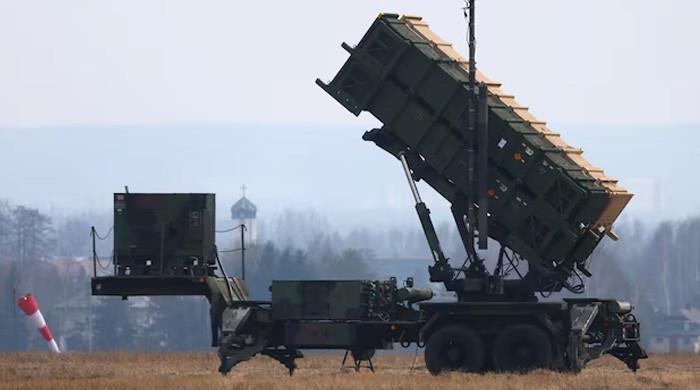- Trump threatens secondary sanctions against Russia in 50 days.
- Said that up to 17 patriotic batteries could be available “very soon”.
- Russian markets are increasing, suggesting relief on delay.
US President Donald Trump announced new weapons for Ukraine on Monday and threatened to hit Russian export buyers with sanctions unless Russia accepts a peace agreement in 50 days, a major change in politics caused by frustration with Moscow.
Sitting side by side with NATO secretary general, Mark Rutte, in the oval office, Trump told journalists that he was disappointed with Russian President Vladimir Putin. Billions of dollars in weapons are said to be distributed to Ukraine, he said.
“We are going to make high -end weapons, and they will be sent to NATO,” said Trump, adding that Washington NATO Allies would pay for weapons.
Weapons include Air Defense Missiles Patriot, which Ukraine urgently sought to defend its cities against Russian air strikes.
“It is a complete complement with the batteries,” said Trump. “We are going to have some very soon, in a few days … Some countries that have patriots will exchange and replace the patriots with those they have.”
Some or the 17 patriotic batteries commanded by other countries could be sent to Ukraine “very quickly,” he said.
His threat of imposing so -called secondary sanctions on Russia, if it was made, would be a major change in Western sanctions policy.
The legislators of the two political parties in the United States are pressure for a bill that would authorize such measures, targeting other countries that buy Russian oil.
Throughout the war of more than three years, Western countries have cut most of their own financial links with Moscow, but prevented measures that would prevent Russia from selling its oil elsewhere. This allowed Moscow to continue to earn hundreds of billions of dollars, from oil shipping to buyers like China and India.
“We are going to make secondary prices,” said Trump. “If we do not have a contract in 50 days, it’s very simple and they will be 100%.”
A White House official said that Trump was referring to 100% prices on Russian goods as well as secondary sanctions against other countries that buy his exports.
Period of grace
However, Trump’s announcement by a period of grace of 50 days was welcomed with a relief from investors in Russia, where the ruble returned to previous losses and stock markets increased.
“Trump has played below market expectations. He gave 50 days during which Russian leaders can offer something and extend the negotiation track. In addition, Trump likes to postpone and prolong these deadlines,” said Anyom Nikolayev analyst of the Invest era, a financial information company.
Trump, who came to power this year, promising a rapid end to war, said that his quarter of work was motivated by growing frustration with Putin, who he said, had spoken of peace but had continued to strike Ukrainian cities.
“We have probably had four times per agreement. And then the agreement would not occur because the bombs would be thrown that evening and you would say that we do no offer,” said Trump.
Since his return to the White House, Trump has asked for a connection with Moscow, speaking several times with Putin.
Its administration has withdrawn from pro-Ukrainian policies such as the support of kyiv’s membership in NATO and demanding that Russia withdraw from any Ukrainian territory.
But so far, Putin has not yet accepted Trump’s proposal for an unconditional ceasefire, which has been quickly approved by kyiv. The last days have seen Russia using hundreds of drones to attack Ukrainian cities.
Trump evacuated his frustration last week, saying: “We get a lot of bullshit that are launched by Putin.”
Earlier Monday, Ukrainian President Volodymyr Zelenskiy had interviews with Trump’s envoy Keith Kellogg.
Zelenskiy said that he had discussed “the way to peace and what we can practically do together to bring him together”, in particular “the strengthening of the air defense of Ukraine, joint production and the purchase of defense weapons in collaboration with Europe”.
An air alert was declared to kyiv shortly after Zelenskiy’s talks with Kellogg took place.
Separately, Zelenskiy said that he would replace his longtime Prime Minister Denys Shmyhal with the first assistant of Shmyhal, Yulia Svyrydenko, in “a transformation of the executive branch”. His appointment will require parliamentary approval.
Svyrydenko, 39, is an economist and previously was Minister of Economic Development and Trade and as deputy chief of the Zelenskiy office. She played a key role in negotiations between Kyiv and Washington on a mineral agreement.
Russia, which began its large -scale invasion in February 2022, has about a fifth in Ukraine. His forces slowly advance in eastern Ukraine and Moscow shows no sign of abandonment of his main war objectives.




